Jean Gill
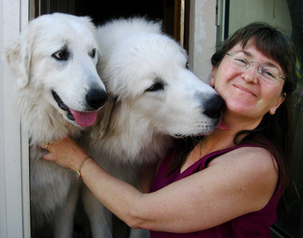
Adventures happen when least expected and after moving to France, she met top French dog trainer Michel Hasbrouck through online dog forums. She has since been trained by him at his Swiss home and she translated his bestselling book into English as Gentle Dog Training. She works with Hasbrouck to provide online advice to dog-owners, with a special understanding of Pyrenean Mountain Dogs. She is currently owned by her sixth Pyrenean Mountain Dog.
Her fourteen books, published both conventionally and self-published, include two books of poetry, autobiography, two military histories, five novels, non-fiction on goat cheese and translated works on training dogs. Her articles on French life, cheese and plumbing have appeared in France magazine, accompanied by her own photographs.
She’s been lucky enough to win prizes for poetry, short stories and journalism and On the Other Hand was shortlisted for Cinnamon Press's Novella Award.
Photography portfolio
When I became 40, I gave up sugar in tea and coffee, became a secondary school Head Teacher, and turned to prose, writing my first novel, after having written and published only poetry previously. Giving up sugar was the hardest.
What attracted you to the genre of Historical Fiction?
I've written and published in twelve genres (so far). This is probably one reason I've never found the Editor of my dreams, one who would love everything I write. For me, the idea comes first and chooses its own genre.
Song at Dawn, the first of my historical novels, started from a statement I read in in a book about troubadours. 'It is rumoured that there was a female troubadour touring the south of France with a large white dog.' Given my love of Pyrenean Mountain Dogs, poetry and the south of France, it was a story I had to write. I enjoy reading historical fiction and I always try to write the sort of books I'd like to read, whatever the genre.
In those early days, how did you juggle the demands of family life with a writing career and the day job?
Writing came last in my priorities and I felt frustrated as a writer until I went freelance in my forties and could control my time between my paid career as an educational consultant, my writing and my family (all equal in my eyes). I had a demanding career and I think writing offered an absorbing alternative world, a kind of mental balance. I do remember two family holidays where I sneaked writing time while the family went out without me, so I must credit a supportive husband and children.
How easy –or hard - was it for you to find ideas for your second novel or second series?
Ideas come easily to me and I have hundreds of ideas for poems, plays and prose, on scraps of paper in my desk. My problem has always been finding time and even now that I can write full-time, I have to accept that it's just not possible to write up all my ideas.
I don't get writer's block (touch wood) and I think one reason for this is because I always stop writing at a point when I know what comes next, so I'm always keen to carry on, rather than staring at a blank page, wondering. If I stare and wonder, it's in the middle of a writing session and I get past that before I stop writing for the day.

A year's research, using books and the Internet, in English, French and a little Occitan (a Romance language spoken in southern France.) Then, when I'm writing, I look up details again, as needed. Others must be the judge of what - if anything - is unique in my work but the characters and stories are alive for me. When I'm awake at 3 a.m., I find it better than counting sheep to play my story in my head and test it for false notes. I need to know each character's motives and feelings, which are the basis for everything that happens, even if they're rarely explicit. At 3 a.m. I often think, 'Ah, so that's why...' and then the next day that knowledge underlies what I write. I take my time over writing and feel I am discovering what does happen rather than creating it.
What was the most surprising thing you learnt about the publishing industry after you had been part of it for six months/a year?
That small presses funded by Arts Council grants produced top quality, beautiful books and had no money or motivation to market them, nor to sell them.
What do you predict will happen in the future to the publishing industry?
The next two years will see a peak in the digital publishing of more words than ever before. Then, the one-book writers will have got it out of their system; those who were hoping to be overnight millionaires mostly won't be, and will give up writing. There will be less crap out there but there will still be a wider range of books than ever before. Online reading groups, reviews and recommendations on sites like www.goodreads.com will become ever more important. Mark Coker will be President of the USA and amazon will have a monopoly on e-reader sales to extra-terrestrials.
What are your own plans for the future?
To be part of it. I want to keep some kind of balance in my life; to write some more books in the Dragonetz series, to continue improving as a photographer, to meet up with my photographer friends once or twice a year for a big shoot, to publish and market the books I write, to support other writers through my workshops on and offline, to continue my development as a dog trainer with Michel Hasbrouck, to stop doing what my dog tells me to do, to help those who have dog problems (especially giant problems with giant dogs), to keep my bees alive and get them to occupy the new beehive, to decorate the hall, and to have time for family and friends. What did I say about balance? Hmm.
What is the most rewarding experience you have had in your writing career?/What is the best part of being a writer?
Every time a reader says he/she liked something I've written, my creative work comes to life again for me and I feel like I've achieved something. I love writing, going into my own world. I love the satisfaction of finishing a book. But when a reader likes it, that is completion, and it happens often enough to keep me feeling good. I've had people write to me saying Snake on Saturdays expressed their feelings and helped them deal with a tragic loss. I've had people say that Gentle Dog Training saved their dogs' lives; and someone has become a dog-trainer, inspired by reading Someone to look up to - these responses are extra- special.
What was the worst/ most difficult thing you have had to deal with?
Thirty years (so far) wondering whether I'm crap really, and the drawer full of publisher rejections to suggest that yes, I'm crap. One specific example: one publisher, a women's co-operative, 'would accept my novel if I made some changes'. I made the changes, didn't hear from them, was avoided when I phoned up. I found out after a year's badgering that they'd had a new editor, who didn't agree with the consensus and wasn't going to publish my book. Presumably no-one had the guts to tell me. That's co-operatives for you - every one's decision and no-one's responsibility.
I have what I call Van Gogh days but then I remember that people have bought my books. No-one bought a Van Gogh in his life-time.
I have two inspirational stories that help me through Van Gogh days. One is about Gustav Holst. Apparently he hated people thinking of him as the composer who wrote 'The Planets' because he wanted to be remembered for his serious work. Jean's moral; be open to appreciation of anything you do and are, even if it's not what YOU thought you were best at. If people love my photography and hate my writing, I will hear only the compliment. If people think I'm a great cook, I won't sulk because they don't look at my photos.
The other is about the poet and artist Dante Gabriel Rossetti who was so overcome with grief when his model and lover died that he buried all his poems in the grave with her. A year later he wanted to publish them and dug them all up again. Jean's moral; don't burn your books. You might feel like that today but tomorrow, you'll want your work back. Which reminds me, I need to back up my hard drive…
Have you any advice for newbie authors, like myself?
Writing is a journey, not a destination, little grasshopper. Enjoy it. Believe in what you write or why should anyone else?
www.jeangill.com
Blog - http://www.jeangill.com
Thanks, Jean - that is really informative. I'm looking forward to reading Song of Dawn and while I have your attention, do you have any good tips for dealing with insane, ten year-old, male tabby cats who want to play at 4am?
Best wishes for the future, from 'Little Grasshopper.' :)
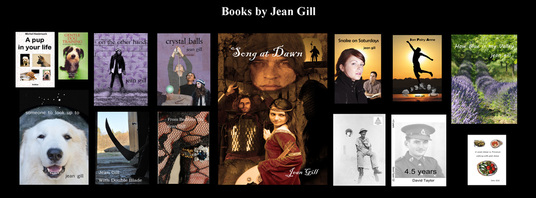
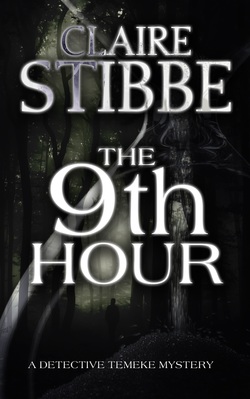
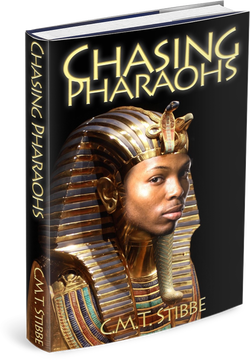
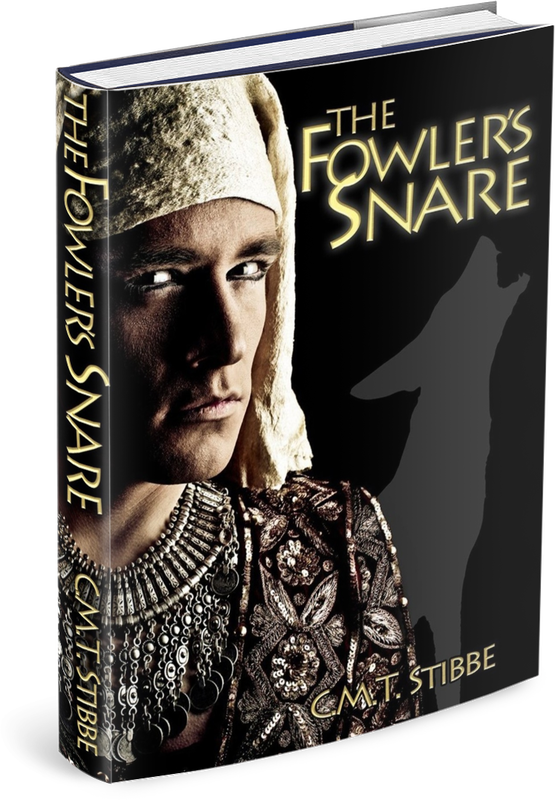
 RSS Feed
RSS Feed